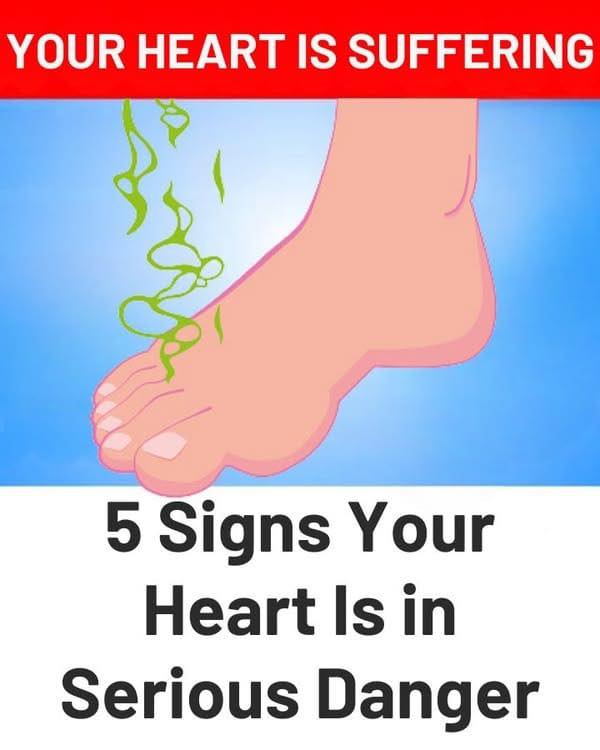❤️ 5 Early Warning Signs Your Heart May Be in Trouble
Heart disease is the world’s leading cause of death, but early detection can save lives. Many symptoms are subtle or mistaken for other issues. If you experience any of these—especially before age 40 or with risk factors (e.g., high blood pressure, diabetes, family history)—see a doctor promptly.
⚠️ Key Signs Your Heart Needs Attention
-
Unexplained Fatigue
-
Why it matters: Extreme exhaustion after routine activities (e.g., climbing stairs) may indicate poor blood circulation due to weakened heart function.
-
Red flag: Fatigue paired with shortness of breath or chest discomfort.
-
-
Shortness of Breath (Dyspnea)
-
Why it matters: The heart and lungs work closely; fluid buildup from heart failure can make breathing difficult, even at rest or while lying flat.
-
Red flag: Waking up gasping for air (a sign of paroxysmal nocturnal dyspnea).
-
-
Swelling in Legs, Ankles, or Feet (Edema)
-
Why it matters: A failing heart struggles to circulate blood, causing fluid retention in extremities.
-
Red flag: Sudden swelling with weight gain (≥2 lbs/day).
-
-
Chest Discomfort (Not Always Pain)
-
Why it matters: Pressure, tightness, or burning (not always severe) can signal angina or a blocked artery.
-
Red flag: Pain radiating to the arm, jaw, or back—a possible heart attack sign.
-
-
Irregular Heartbeat (Arrhythmia)
-
Why it matters: Fluttering, skipped beats, or a racing heart at rest may indicate electrical problems.
-
Red flag: Fainting (syncope) or near-fainting spells.
-
🔍 Lesser-Known Clues
-
Gum Disease or Chronic Bad Breath: Inflammation linked to heart disease.
-
Frequent Dizziness: Poor circulation affecting the brain.
-
Snoring/Sleep Apnea: Strain on the heart from oxygen drops.
🛡️ Proactive Steps
-
Get Checked: Blood pressure, cholesterol, and diabetes screenings.
-
Know Your Numbers: Optimal LDL cholesterol <100 mg/dL; BP <120/80 mmHg.
-
Lifestyle Tweaks:
-
Move 30+ mins/day (brisk walking counts!).
-
Eat heart-healthy fats (avocados, nuts, olive oil).
-
Quit smoking—#1 preventable risk.
-
💡 Remember: Silent heart attacks (no obvious symptoms) account for 45% of cases. Listen to your body!
🚨 When to Seek Emergency Care
Call emergency services if you experience:
✔ Crushing chest pain + sweating/nausea.
✔ Sudden shortness of breath with confusion.
✔ Blue-tinged lips or skin (cyanosis).
Early action = Better outcomes. Share this with loved ones—awareness saves hearts! ♥
